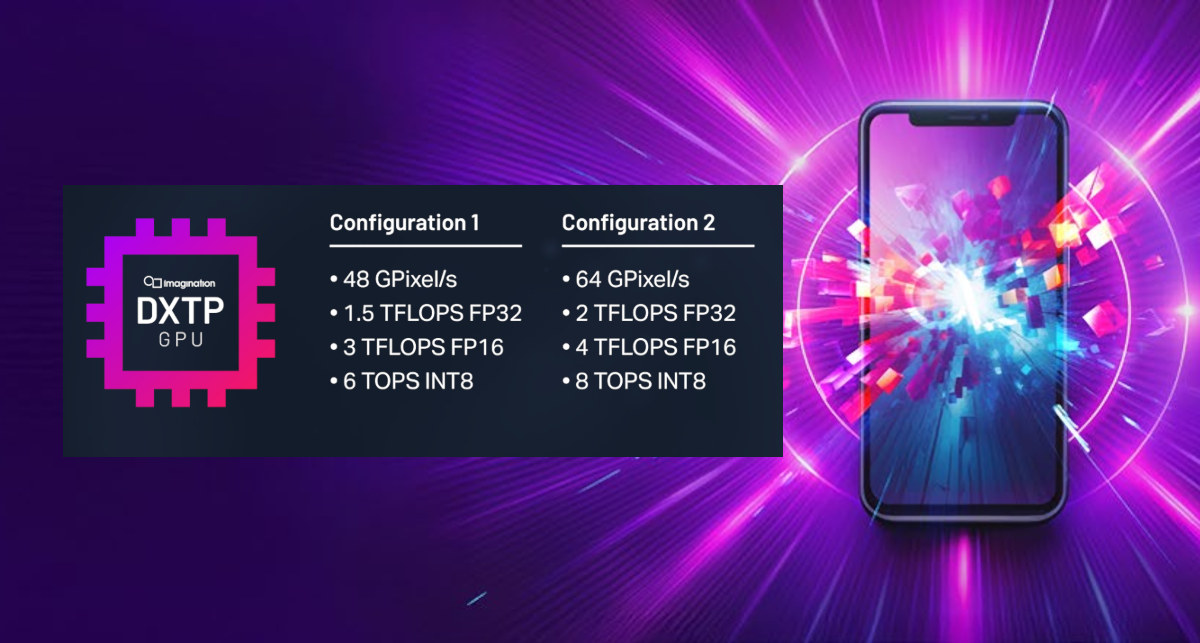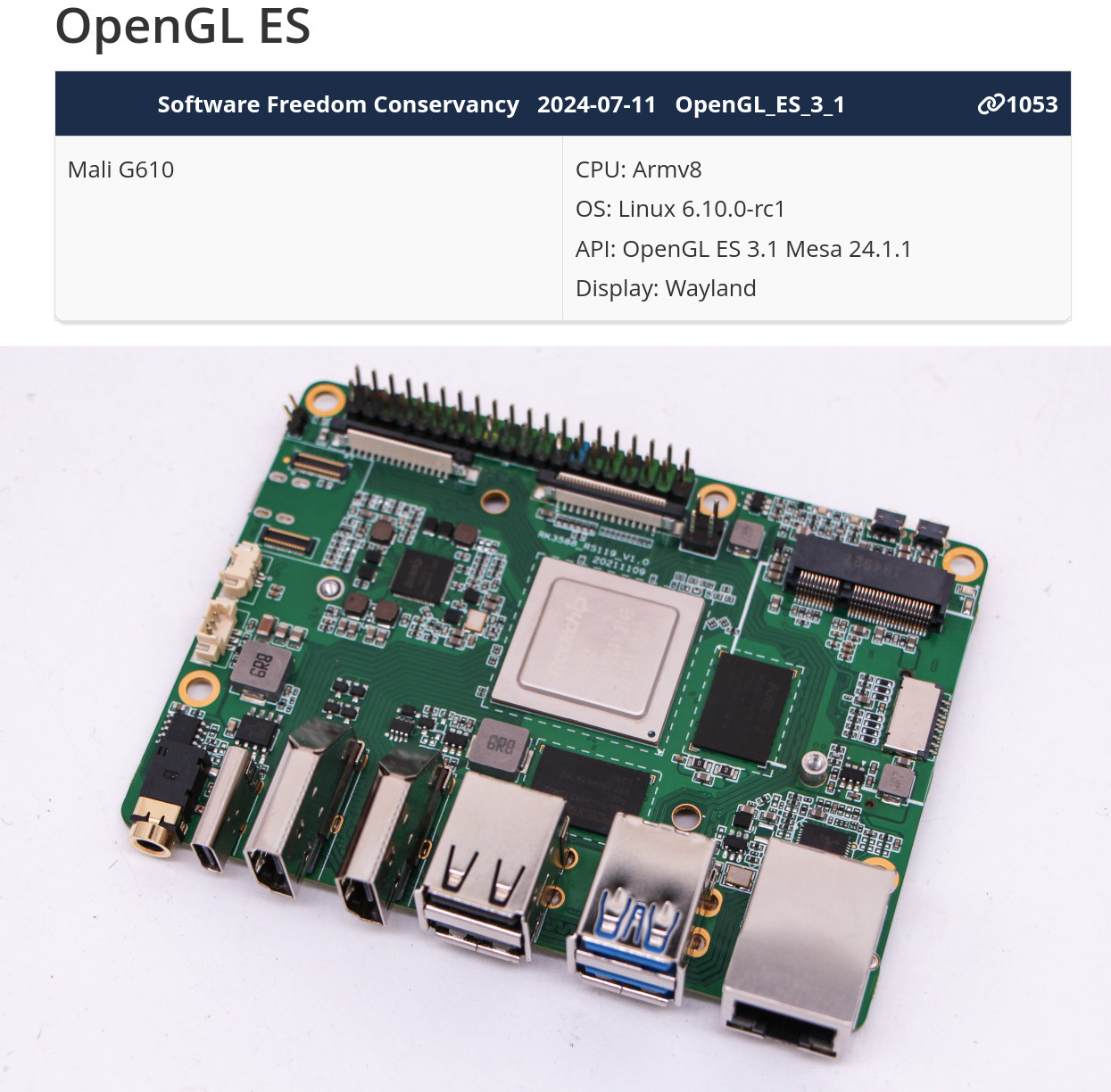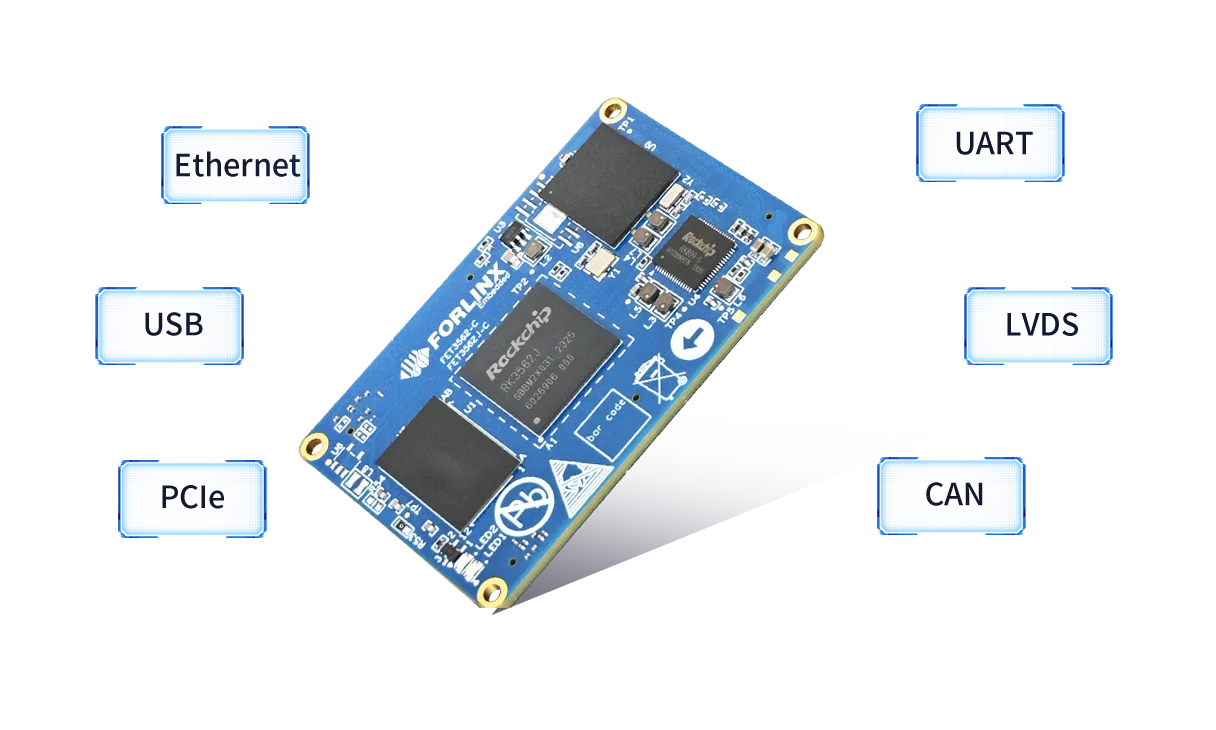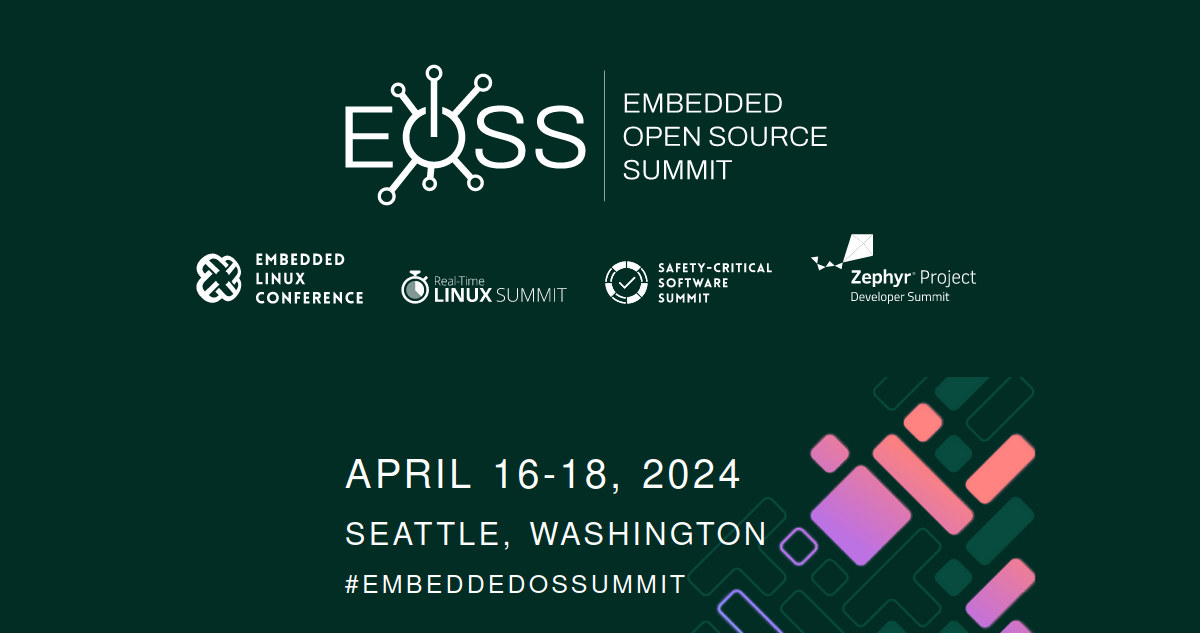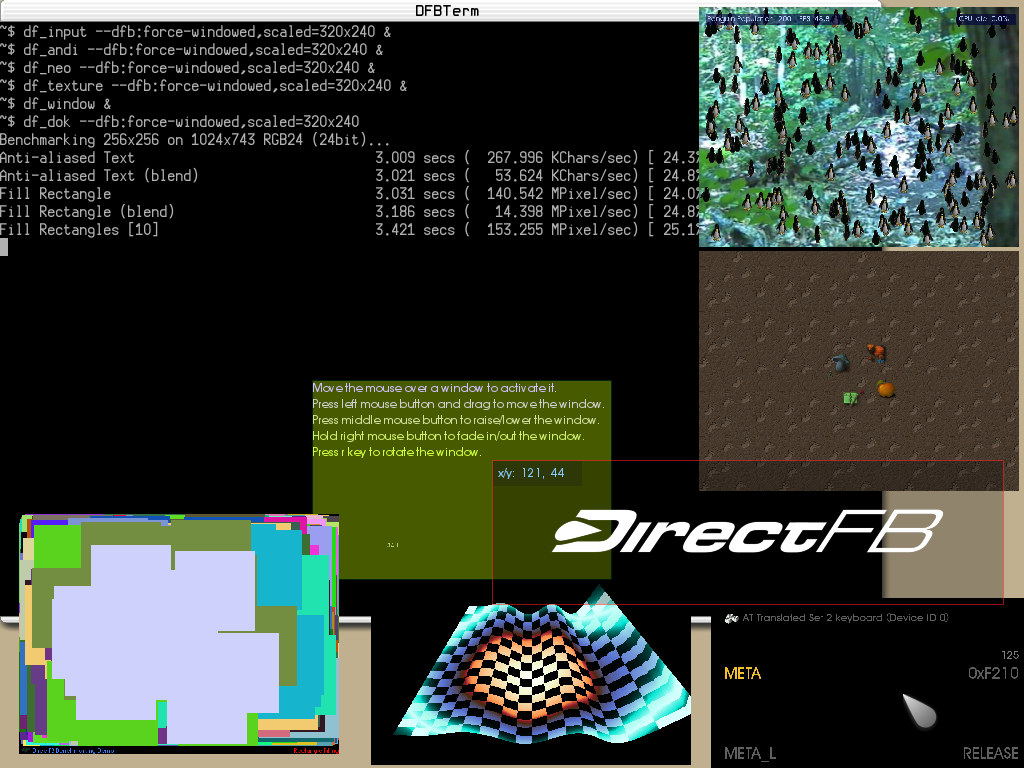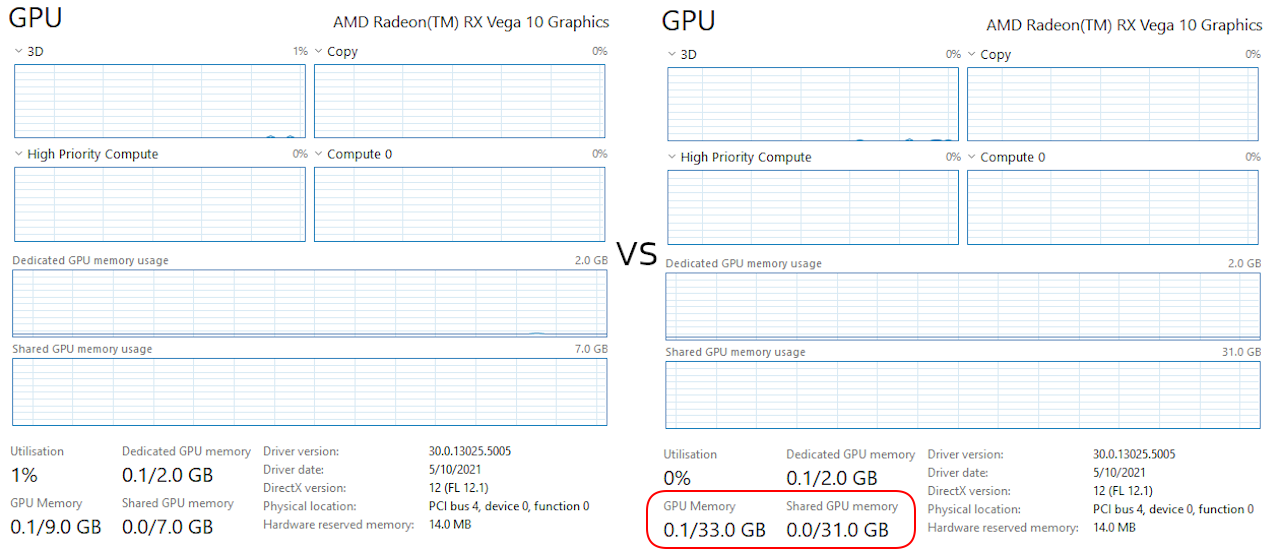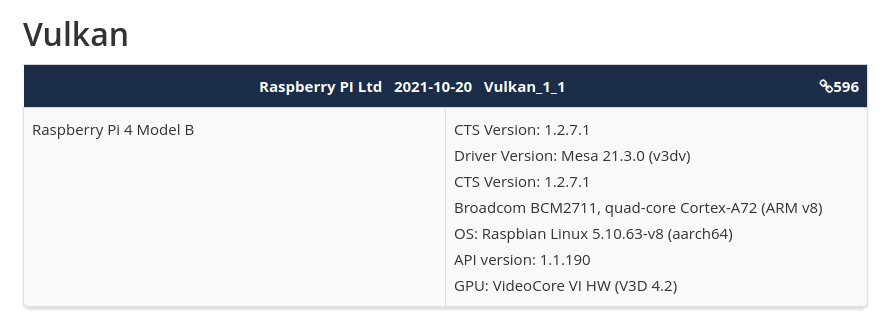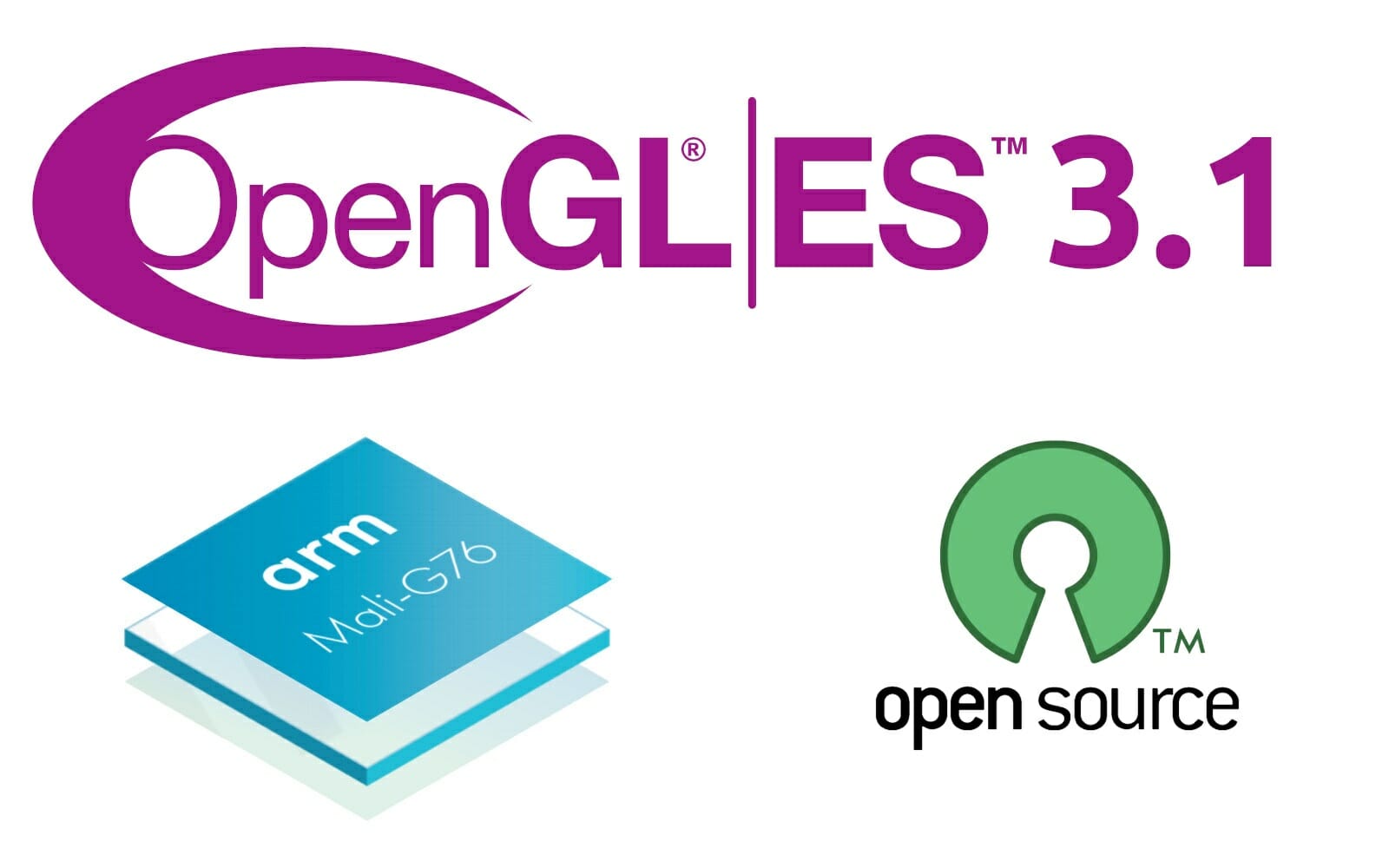Imagination has announced the DXTP GPU for mobile and power-constrained devices with up to 20% greater power efficiency than its predecessor, the D-Series DXT GPU for longer battery life for AI applications or complex games. The company says the GPU is suitable for gaming, user interfaces, graphics-rich applications, computer vision, generative AI, and other AI applications designed to run on smartphones, tablets, laptops, desktops, or non-safety automotive products. Imagination DXTP highlights: Two off-the-shelf configurations: DXTP-48-1536 48 GPixel/s 1.5 TFLOPS FP32 (1536 FLOPs/Clock) 3 TFLOPS FP16 6 TOPS INT8 48 ppc Bilinear 3D Textured Up to 96 ppc 2D Dual Rate Mode DXTP-64-2048 64 GPixel/s 2 TFLOPS FP32 (2048 FLOPs/Clock) 4 TFLOPS FP16 8 TOPS INT8 64 ppc Bilinear 3D Textured Up to 128 ppc 2D Dual Rate Mode Bus Interface – AXI, ACE-Lite Compression PVRIC5 Lossless and Lossy Framebuffer Compression ETC and ASTC LDR and HDR Support Microarchitecture improvement – […]
Panthor open-source driver achieves OpenGL ES 3.1 conformance with Arm Mali-G610 GPU (RK3588 SoC)
Collabora has just announced that the Panthor open-source GPU kernel driver for third-generation Arm Valhall GPUs (Arm Mali-G310, Mali-G510, Mali-G610, and Mali-G710) has now achieved OpenGL ES 3.1 conformance with the Arm Mali-G610 GPU found in the Rockchip RK3588 SoC. Just a few days ago, Linux 6.10 was released with “support for Mali CSF-based GPUs found on recent Arm SoCs from Rockchip or Mediatek”, as expected from the earlier article entitled “Panthor open-source driver for Arm Mali-G310, Mali-G510, Mali-G610, and Mali-G710 GPUs to be part of Linux 6.10” published last March. But this did not say anything about the level of support for the Valhall GPU since it’s common for new hardware to be added with minimal support, and OpenGL ES 3.1 compliance means it’s ready for business… Collabora’s announcement explains this was tested on a Radxa Rock 5B single board computer: The conformance tests ran on a Rock5b board […]
Forlinx FET3562J-C SoM features Rockchip RK3562(J) SoC with 1 TOPS NPU, dual Ethernet, camera, display interfaces
The Forlinx FET3562J-C is a Rockchip RK3562/RK3562J powered System-on-Module (SoM) built with a 22nm process and features four high-performance ARM Cortex-A53 cores running at up to 2GHz. It also can support up to 2GB LPDDR4 RAM and can be configured with up to 16GB eMMC storage. Additionally, it has 1 TOPS NPU and standard peripherals like Ethernet, Wifi, Bluetooth, LVDS, MIPI DSI, and much more. All these features make this SoM useful for IoT, automation, and consumer electronic applications. Previously, we have seen Forlinx launch similar SoM with development boards such as the Forlinx RZ/G2L, the FET-MX9352-C, the OK335xS-II and much more feel free to check those out if you are interested in the topic. Forlinx FET3562J-C SoM and carrier board specifications SoM Specifications SoC (one or the other) Rockchip RK3562J – ARM Cortex-A53 quad-core @ 1.8GHz Rockchip RK3562 ARM Cortex-A53 quad-core @ 2.0 GHz NPU – 1 TOPS INT8 […]
Embedded Open Source Summit 2024 schedule – Embedded Linux, Zephyr OS, and Real-time Linux
The Embedded Open Source Summit 2024 (EOSS 2024) will take place on April 16-18 and the Linux Foundation has already announced the schedule with conference sessions, lightning talks, and birds of a feather (BoF) sessions covering embedded Linux, Zephyr OS, and real-time (RT) Linux. While I won’t be attending in person, I still find it interesting to check out the schedule as we may learn more about the current status of embedded Linux. So I’ve created my own little virtual schedule out of the available talks. Tuesday, April 16 – Day 1, Embedded Open Source Summit 2024 9:05 – 9:45 – No, It’s (Still) Never Too Late to Upstream Your Legacy Linux-Based Platforms by Neil Armstrong, Linaro Nearly 7 years ago, Neil already spoke about this subject in Berlin, and it’s still very true. Do you maintain or used to maintain a Linux-based board or SoC off-tree? Then there are […]
DirectFB2 project brings back DirectFB graphics library for Linux embedded systems
DirectFB2 is a new open-source project that brings back DirectFB, a graphics library optimized for Linux-based embedded systems that was popular several years ago for 2D user interfaces but has since mostly faded away. DirectFB2 attempts to preserve the original DirectFB backend while adding new features such as modern 3D APIs like Vulkan and OpenGL ES. I personally used it in 2008-2009 while working with Sigma Designs media processors that relied on the DirectFB library to render the user interfaces for IPTV boxes, karaoke machines, and so on. I remember this forced me to switch from a MicroWindows + Framebuffer solution, but the DirectFB API was easy enough to use and allowed us to develop a nicer user interface. I found out about the new project while checking out the FOSDEM 2022 schedule and a talk entitled “Back to DirectFB! The revival of DirectFB with DirectFB2” which will be presented […]
OS and Memory Impact on Mini PC Gaming Performance
This article looks at what the effect of running a different operating system or having more memory has on similarly spec’d Intel and AMD mini PCs when gaming. Note: This article has been updated and corrected as a result of reader feedback and additional testing. It was inspired by having built and tested a pseudo ‘Steamdeck’ running Manjaro on an AMD-based mini PC with 16GB of memory, which made me wonder what the performance would be like using Windows 11. Initial results were surprising because Windows appeared much slower. As I’d previously heard of performance improvements when using 64GB of memory I swapped out the currently installed 16GB memory and immediately saw improved results. As I’d never observed such a dramatic performance increase on Intel mini PCs just through increasing the memory I decided to explore further by testing gaming performance on similar Intel and AMD mini PCs when using […]
Raspberry Pi 4 achieves Vulkan 1.1 conformance, gets up to 60% GPU performance boost
Khronos has just granted Vulkan 1.1 conformance to Raspberry Pi 4 SBC, and following the implementation of various optimizations and new features such as geometry shaders, the v3dv Mesa driver delivers up to 60% higher GPU performance in Unreal Engine 4. Iglia started Vulkan driver work for Raspberry Pi 4 almost two years ago, with the triangle demo showcased in February 2020, followed by Vulkan 1.0 conformance in November 2020, and now the driver is certified conformant to Vulkan 1.1. While many GPUs are conformant, the Raspberry Pi 4 is only joined by a couple of complete platforms including several NVIDIA Jetson modules (Vulkan 1.2), and possibly some Intel and Google platforms shown as “Confidential” at this time. Alex Bate, Digital Content Manager for the Raspberry Pi Foundation, explains the driver changes for Vulkan 1.1 conformance have already been merged in the upstream v3dv Mesa driver, and should soon become […]
Panfrost now supports OpenGL ES 3.1 on Midgard (Mali T760 and newer) and Bifrost (Mali G31, G52, G76) GPUs
OpenGL ES 3.0 experimental support for Panfrost open-source Arm Mali GPU driver was announced in February 2020 and culminate with the release of Mesa 20.3 with Panfrost support last December. Collabora has now started to work on Panvk, Panfrost Vulkan driver, but that does not mean OpenGL ES work is done, and the company has just published a blog post about OpenGL ES 3.1 support in Panfrost. Alyssa Rosenzweig explains OpenGL ES 3.1 extends to both the older Midgard GPUs that include Mali T760 and newer version, and the more recent Bifrost GPUs with Mali-G31, Mali-G52 and Mali-G76. Compared to OpenGL ES 3.0, OpenGL ES 3.1 adds compute shaders, indirect draws, and no-attachment framebuffers. Boris Brezillon, Italo, Nicola, Alyssa, and the wider Mesa community especially focused on Mali-G52 GPU, found for instance in Amlogic A311D and Rockchip RK3566, with Panfrost driver passing essentially all of drawElements Quality Program and Khronos […]


